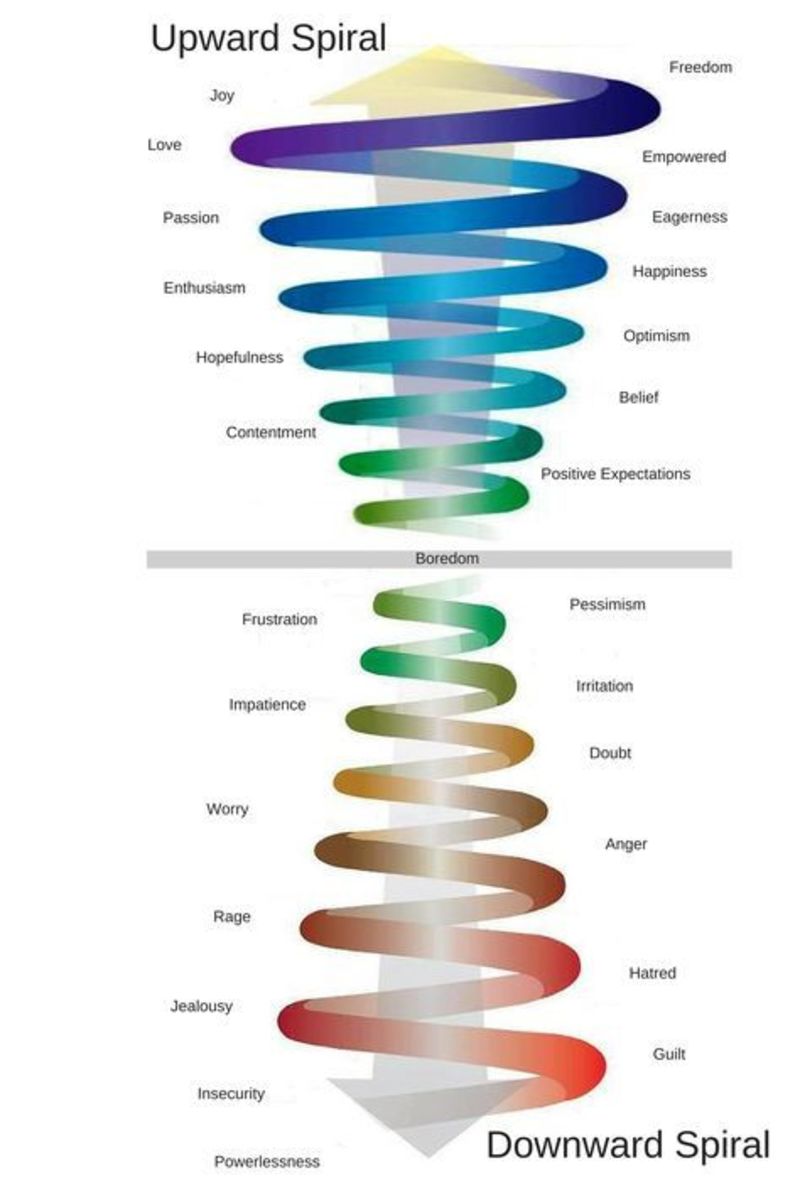Dealing with Difficult People - Part 2
Grenade Gorilla

Strategies and Language to Use for Dealing with Difficult People - the Grenade Gorilla and Know-It-Owls
This is the second in a series of Hubs on Dealing with Difficult People. It is important to remember when you attempt to deal with difficult people that the reason they are difficult to deal with is because they have learned to control you – to push your hot buttons.
Don’t let them get to you. Control your anger so you can change the way you deal with them. Show them with your body language and eye contact that you have an interest in what they are saying and do not find fault. In fact, it is a good idea to eliminate “don’t” from your vocabulary. That word often triggers resistance and the last thing you want to do is aggravate difficult people.
“When dealing with people, remember you are not dealing with creatures of logic, but creatures of emotion.” – Dale Carnegie
Here are some more strategies and effective language to use with these three types of normal people exhibiting difficult behavior.
The Grenade Gorilla
How will you know you are dealing with a Grenade Gorilla? You will often hear language like: "Why don't you watch where you're "blankety-blank" going? That's the matter with the "blankety-blank" world today. Nobody gives a "blankety-blank" about anyone!"
The major difference between the Bellowing Bull whom I wrote about earlier and the Grenade Gorilla is that the Bull is aggressive and intimidating a great deal of the time – it is his or her natural inclination. The Grenade Gorilla is usually more pleasant and amicable. But Gorillas have a tendency to explode and frequently the outburst is not planned by them nor expected by you. They may throw an adult tantrum or become hysterical with rage and even produce tears.
What is their motivation for this type of behavior? This unfocused ranting and raving may have nothing to do with you or even with the present circumstances. Why do Gorillas behave this way? They may feel thwarted and even psychologically threatened, and they lose control when they perceive even the slightest threat because they feel insecure.
How should you deal with this difficult person? Strategies and language to use:
• First, give them time to run down. Sometimes they become suddenly silent, or they may burst into tears.
• If they don't run down, break into their monologue and shout something like, "Stop! Stop!" or "Right! Right!" or "Yes! Yes!" Don't be afraid to yell at them to get their attention.
• Show Gorillas you take them seriously. Say something like, "I can see that this is very important to you and I want to discuss it, but not this way (not here)." You may have to repeat this statement.
• Manufacture some kind of an interruption. Announce a break if the behavior occurs in a meeting, or walk away quoting Arnold Shwarzenegger, "I'll be back."
• If possible move to a private place. Tell the Gorilla, "I want to hear what you have to say, but not here - come into the office."
• When it’s appropriate, use your strongest ‘motivators’ – appreciation and admiration.
Genuine Know-It-Owl

The Genuine Know-It-Owl
How will you know you are dealing with a Genuine Know-It-Owl? You will hear that person say something like: "I am a professional. I am an expert in this field. Trust me, I know the best way to . . . “
These folks are know-it-alls who really do know it all. They believe they know the best way to do a job so the ideas of others are unimportant and irrelevant. They respond with irritation, anger or withdrawal to opinions different from their own. Seldom in doubt of their ability or their knowledge, Genuine Know-It-Owls have a low tolerance for contradiction, correction or opposition.
What is their motivation for this type of behavior? The "know-it-all" quality that was equated with strength in their parents has become associated with superiority and stability in an ever-changing world. If good things happen, they caused them. This aura of certainty represents security to the Genuine Know-It-Owl.
How should you deal with this difficult person? Strategies and language to use:
• Do your homework. Do your research. Be prepared with facts and figures or you will be dismissed as an incompetent.
• Listen attentively and paraphrase the main points of what you hear. This will indicate that you appreciate and respect their importance, their instructions, and advice.
• Question, rather than state. Questions permit new information to be considered. Statements, however, are seen as an attack on their competence and knowledge.
• When you question, ask, "Could you explain . . . " or "How do you think what you are suggesting will actually look in practice?" or “How would you implement this . . . ?”
• Do not be a counter-expert or know-it-all yourself. Acknowledge their competence with language such as, "I consider you an expert in this field." Try to be sincere.
• Take time for reflection. Say something like, "That may be the way to go; let me think it over."
• Be a colleague. "Take a look at what I'm proposing; maybe you can work it into something." Yes, you are catering to them, but remember they generally know what they are talking about.
• As a last resort, subordinate yourself to build a relationship of equality in the future. The Genuine Know-It-Owl may begin to see you as an equal. After all, you have recognized what an intelligent, informative, knowledgeable, competent person he or she is.
Now take a look at the Bogus Know-It-Owls, difficult people who also believe they know it all and they do – but what they know may be all wrong.
Bogus Know-It-Owl

The Bogus Know-It-Owl
How will you know that you are dealing with a Bogus Know-It-Owl? Often, you can tell the impostor by his or her language. Statements like: "You got a question about that, or anything else, just ask me. I know what I'm talking about. You can believe what I tell you. I listen to CNN and surf the web constantly. Forget the rumors, just ask me.”
Bogus know-it-owls think they know it all and speak with authority about that which they really don't know. They are instant experts who really believe that they know what they are talking about. They may sound convincing but they are usually wrong about the information they provide.
What is their motivation for this type of behavior? They have an overwhelming desire to be admired and respected by others – to be seen as important persons. At the moment of speaking, they really believe what they are saying. They may have the facts totally misconstrued but in their minds they believe they are right.
How should you deal with this difficult person? Strategies and language to use:
• Present your facts not as a blatant statement but as an alternative. Use language like: "I've heard that . . . “ or “Did you happen to read that article in the newspaper about . . .” and go on to set the facts straight.
• Provide a way for them to save face. Say: "I think the situation was different then; perhaps you're thinking about . . . "
• Fill in with conversation to give the phony know-it-all a chance to recover.
• Face them alone when possible. Presenting the real facts is more easily done when others are not present.
As I write this I'm thinking of a colleague who always seems to know everything about any subject you bring up. And her information is often totally off the mark. But she fervently believes she is providing facts and hard data. Here's an example. We had a discussion the other day about the merits of different office copiers. Someone was proposing the advantages of using a particular copier and she was quick to point out that the newest model wouldn't be available for another month so the comparison was academic.
In truth, this copier was already available. But she was adamant. She read an article on the Web and it said next month. So next month it was. There is no point arguing with a Bogus Owl. You can say, "I heard they are available now." But that won't necessarily convince her. She is resolute, convinced she knows the truth, and the only person getting stressed – you guessed it – is you.
“Real knowledge is to know the extent of one’s ignorance.” – Confucius
I’ve now discussed the Bellowing Bull, Sly, Sneaky Snake, Grenade Gorilla, Genuine Know-It-Owl, and Bogus Know-It-Owl. See links below for my Hubs discussing the five remaining types of difficult persons: the Calamity Chicken Little, Complaining Crocodile, Pleasant Puppy, Uncommunicative Clam and Compromising Chameleon.
© Copyright BJ Rakow 2010, 2011. All rights reserved.
B. J. Rakow, Ph.D., Author, “Much of What You Know about Job Search Just Ain’t So.” This is a serious book about job search which readers say is enlightening but also fun to read.. You may also enjoy my Hub: "Take the PIG Personality Test" and four Hubs on "Dumb Crazy Laws."
More Types of Difficult People
- Dealing with Difficult People
What do you think? Can you make difficult people change? Probably not. The motivation to change comes from within. People have to be willing to change themselves. What you can do is use proven coping skills... - Dealing with Difficult People - Part 3
This is the third article on Dealing with Difficult People. The bad news is - you cannot change other people. The good news is - you can change the way you react to them. Use the strategies and language I... - Dealing with Difficult People - Part 4
This is the fourth and final (for the time being) article on Dealing with Difficult People The Complaining Crocodile How do you know when you are dealing with a Complaining (Whining) Crocodile? The...







